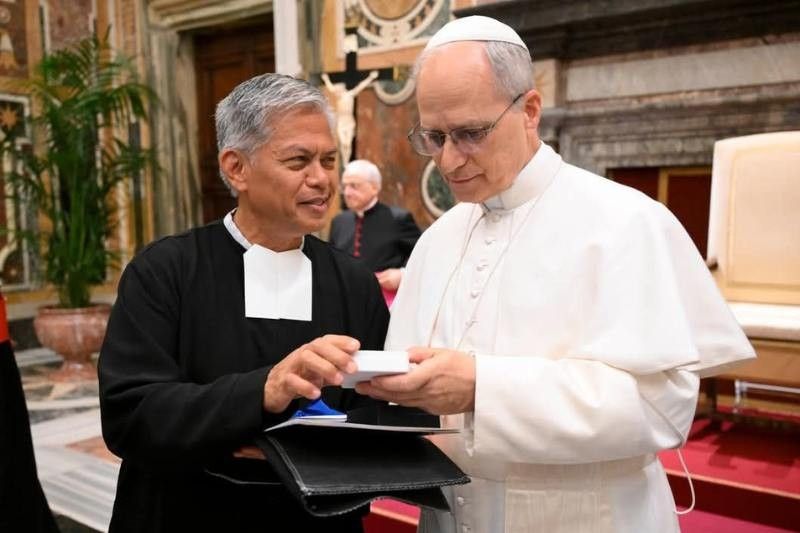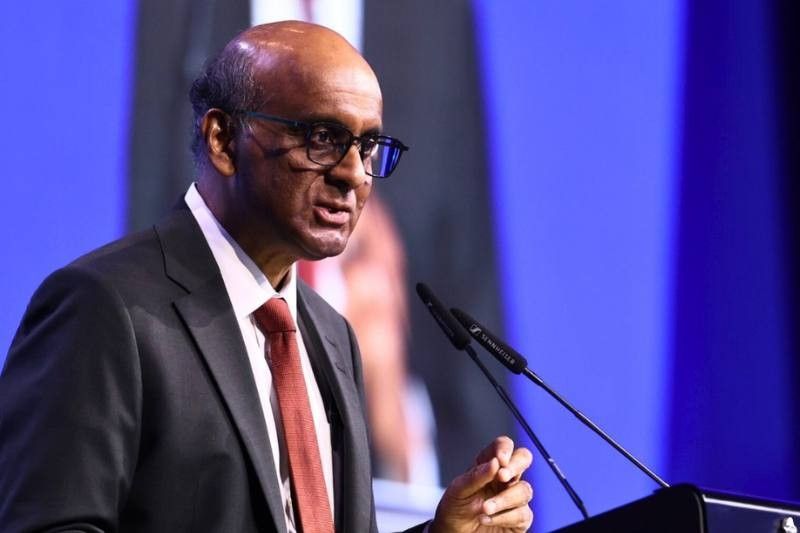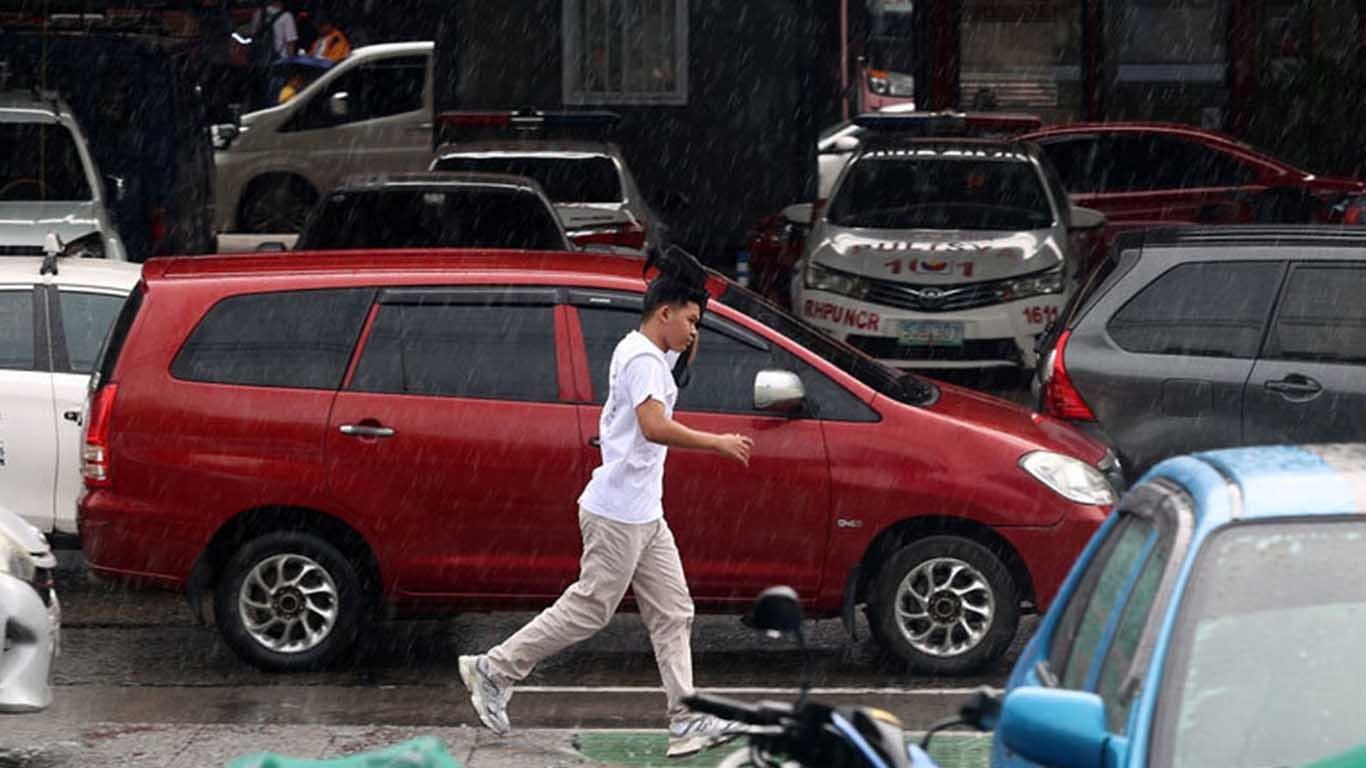
Upgrade to High-Speed Internet for only ₱1499/month!
Enjoy up to 100 Mbps fiber broadband, perfect for browsing, streaming, and gaming.
Visit Suniway.ph to learn
Bella Cariaso - The Philippine Star
June 18, 2025 | 12:00am
MANILA, Philippines — The Department of Education (DepEd) officially launched the strengthened Senior High School (SHS) curriculum in 841 schools nationwide as the new school year began on Monday.
This pilot phase marks the initial step toward a broader reform of the K-12 program, with full nationwide rollout planned for next year.
Education Secretary Sonny Angara explained that the reform addresses concerns about students being overwhelmed by an excessive number of subjects, which hampers focus and job readiness.
“They lack exposure to actual work and the instruction is not enough because of too many subjects. There are 33 subjects for two years so the students cannot focus, and after graduation they cannot find jobs,” Angara said.
Among the major changes are a streamlined curriculum, increased work immersion hours and an emphasis on practical competencies.
Core subjects will be reduced from 15 to five: Effective Communication, Life Skills, General Mathematics, General Science and Pag-aaral ng Kasaysayan at Lipunang Pilipino (Study of History and Filipino Society).
Grade 11 students may take two elective subjects, while Grade 12 students will have five to seven electives.
Work immersion hours will nearly double from 340 to 640 hours to better prepare students for employment or further studies.
Complementing the curriculum reforms, the revised K-12 or MATATAG curriculum will also be implemented this school year in Grades 2, 3, 5 and 8.
Peaceful
The Philippine National Police (PNP) reported a generally peaceful opening of classes nationwide, with continued visibility and security presence pledged throughout School Year 2025-2026.
PNP chief Gen. Nicolas Torre III said the deployment of officers is not limited to the opening day but will continue daily for the rest of School Year 2025-2026.
“Now that classes are back on a regular weekday schedule, our deployment will also continue on a daily basis,” Torre said in Filipino during his inspection of Ramon Magsaysay High School in Quezon City.
He noted that police assistance desks, which were set up before the school opening, will remain operational to assist students and the public in emergencies.
“Schools are now part of our fixed visibility points,” he added.
Over 37,000 officers were deployed to schools, transport hubs and other key areas, while police assistance desks established before the opening remain operational for emergencies.
Torre personally security operations at Batasan High School and President Corazon Aquino Elementary School.
In Quezon City alone, 628 police officers were assigned to 234 schools under the “Ligtas Balik-Eskwela” initiative.
“I saw the discipline, preparedness and commitment of our personnel on the ground. We remain fully committed to keeping our communities safe, especially for our children,” Torre said.
“We will continue to ensure a safe and productive school year for our youth,” Col. Randy Glenn Silvio, acting director of the Quezon City Police District, added.
Diploma or diskarte?
Those who did not finish college because they had to work may now have both, with the signing of the implementing rules of the law allowing them to complete their tertiary education.
President Marcos yesterday led the launch of the implementing rules of the Expanded Tertiary Education Equivalency and Accreditation Program (ETEEAP) Act, which offers Filipinos who were unable to finish college a second chance at earning a degree by recognizing their prior learning and work experience.
“We all understand learning is not confined to the classroom. Often, the most important lessons are learned in the workplace, on shop floors, helping run a family business. Each experience in life carries a lesson, which we consider the toughest yet most honest teacher,” the President said.
The ETEEAP law institutionalizes an educational assessment system that validates knowledge and skills acquired through informal or non-traditional means.
Under its guidelines, the Commission on Higher Education (CHED) will oversee equivalency standards and assessments, including tests, interviews and portfolio reviews, to grant academic credits or degrees.
Applicants must be at least 23 years old, have completed secondary education and possess five years of relevant work experience.
Marcos noted many Filipinos had to leave college to support their families, but their intelligence and diskarte or grit remain valuable assets.
“Through this act, we now have a clear and structured way to recognize the prior learning of individuals… and match that with an academic equivalency,” he said.
Band-aid solutions
Despite the promising reforms, progressive lawmakers criticized the Marcos administration for what they described as “band-aid” responses to the education crisis.
House Deputy Minority Leader France Castro pointed to glaring shortages of 165,000 classrooms and 56,050 teachers, which she said continue to hinder functional literacy in the country.
“Functional literacy in the country is low because of the basic and glaring shortages in our education system,” Castro said.
She also condemned DepEd’s coping mechanisms such as larger class sizes, extra teaching loads, hybrid learning modes and multiple shifts in overcrowded schools, calling them ineffective and detrimental to student learning. — Jose Rodel Clapano, Alexis Romero, Emmanuel Tupas, Neil Jayson Servallos

 1 week ago
4
1 week ago
4



